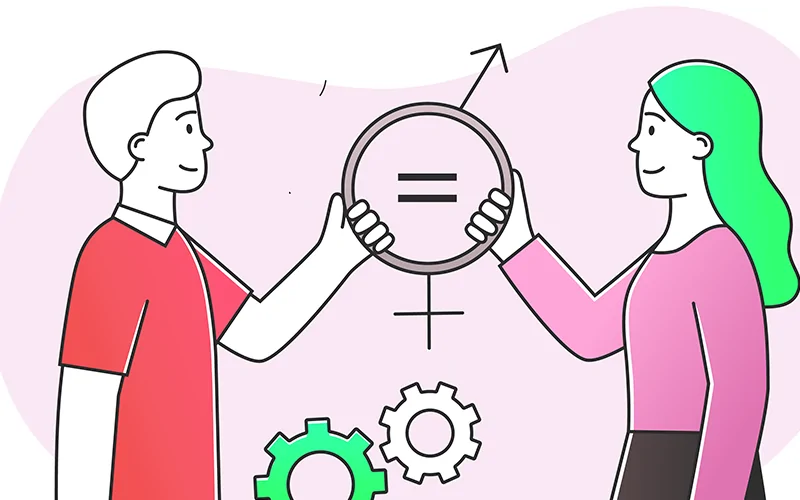Explain the Chris Argyris proposition about the impact of normal organization on the individuals.
Chris Argyris as a great psychologist and an organizational theorist, studies organization from the psychological view point. He studies about the human psychology and human relation. He stress upon the individuals relationship to the organization. He has treated the conflict between the individual social and psychological needs and the exigencies of the organization. For developing his concept of organizational behaviour, Angyris has applied research findings in the field of psychology, social psychology and human relation.
His influence on the disciplines of management and public administration is widespread. His theory of human relation is based on the characteristics of the individual, the work group and the formal organization.
Argyris research show that how personal development of the individual is affected by the situation in which he works. As a consultant and pioneer in the application of the T-group technique, his influence on performs of organizational structure and managerial practices of organizational structure and managerial practices is striking. According to his opinion, organization as an open system. He has studied the interaction between the organization and the environment, also between the individual and the organization.
Argyris in his socio-psychological approach emphasized upon the development of individual psychology which forms the basis of human behaviour. To him every organization provide an environment in which individual can develop his personality. He was against the principle of formal organization as it does not provide any opportunity personality.
He said that principles of formal organization is coupled with managerial control. In the formal organization, there is lack of employee’s participation in the decision-making and use of control system such as work study and cost accounting. The formal organization also restricts the initiative and creativity of the individual. To him, individual in the formal organization is
- Not a forward looking,
- He is passive, not creative, and
- His concern are restricted to his own work difficulties.
In such situation, executives are liable to become yet more autocrate and linerative. Their excessive control over management restrict employees participation in the decision-making process. It also effect the working life of the individual and rise feeling of mutual distrust. Employee and even lower managers feel that management control is just like an instrument of punishment.
Angyris formulates certain proposition about the impact of formal organization on the individual. Major hypotheses in this regard are as follows:
Sometime management reaction produce a sense of psychological failure, as a result there is loss of interest in work, loss of self-confidence, tendency of blaming others, lower work standards,. giving up easily and lastly a fear of still more failure.
Another impact of the rigidities of formal organization is the development of frustration among the participant in the organization. Their desire for a healthy existence and self-actualization may not be satisfied. The resultant frustration on the part of the participants is likely to lead to a less matured behaviour, aggression and hospitality.
There is lack of disagreement between the need of individual and the initial demands of the formal organization. This lead to a conflicting situation because the individuals feels that he cannot fulfill his personal needs and at the same time meet the demands of the organization. This create negative reaction on the part of the individual. Individual starts thinking for leaving the job, taking leave without information, ignoring the requirement of the organization. Individual also shows indifference and lack of interest in the organization in the organization, which may create conflict and tension in the organization or lead to some major organizational problems.
The consequences of the aforesaid situations is that the workers either demanded more money to compensate the situation their own needs evidence of work.
Argyris also argues that the needs of the individuals will be in congruent with the maximum expression of the demand of the formal organization. Thus the informal organization is born to avoid the conflict between the two. The informal organization serves the following purposes:
- It reduces the individual employee’s feelings of dependence, submissiveness, sub-ordination and passivity towards management.
- The informal organization enables him to express his pent-up feelings ranging from out right aggression and hospitality to passive inter-nationalization of tensions that are caused by the formal organization, directive leadership, management controls and pseudo-human relations programs.
- The informal organization helps the individual employee to create own informal world with its own culture and values, in which he finds psychological shelter and a firm anchor to maintain stability while in the process of adjusting and developing to the formal organization.
Argyris says that “by creating the informal world individual can take an active role in influencing formal organization.” He also observes that if the informal organization did not exist the employee become full of pent-up tension. Argyris suggests certain solutions through which disagreement between the formal organization and the individual could be removed. These suggested solutions are given below:
The first suggestion given by Argyris is to encourage participative management and leadership. For this he suggests that only mature individuals should be selected for managerial and leadership positions as the immature individual are unable to face the situation.
Another important solution to reduce the disagreement between the management and the individual is to enlarge the jobs instead of cutting them. Jobs should be enlarged in content and increased in variety. This will create an interest in the employee and also generate a feeling of responsibility. It also remove the conditions which create conflict, frustration and feeling of failure.
Lastly, Argyris favors the development of reality leadership where the leader needs a great deal of understanding rather than just depending upon hunches of guess work for decision-making. Top managers must not be afraid to show their real feeling to those above and below them. They must try to speak constructively about one another in a way, which is honest and helpful.





